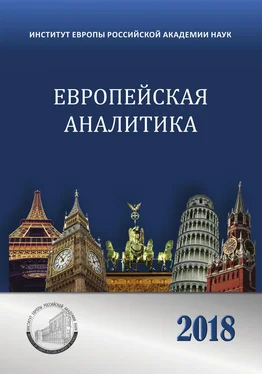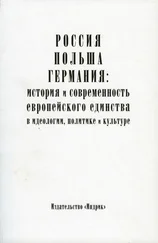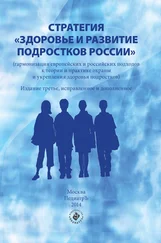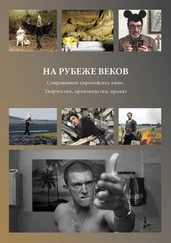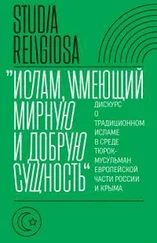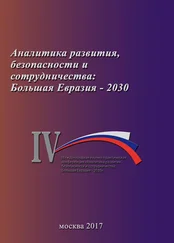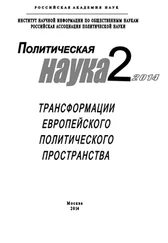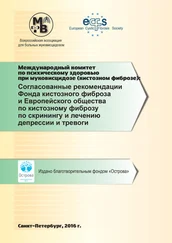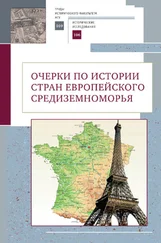Коллектив авторов - Европейская аналитика 2018
Здесь есть возможность читать онлайн «Коллектив авторов - Европейская аналитика 2018» — ознакомительный отрывок электронной книги совершенно бесплатно, а после прочтения отрывка купить полную версию. В некоторых случаях можно слушать аудио, скачать через торрент в формате fb2 и присутствует краткое содержание. ISBN: , Жанр: Политика, на русском языке. Описание произведения, (предисловие) а так же отзывы посетителей доступны на портале библиотеки ЛибКат.
- Название:Европейская аналитика 2018
- Автор:
- Жанр:
- Год:неизвестен
- ISBN:978-5-4469-1482-1
- Рейтинг книги:3 / 5. Голосов: 1
-
Избранное:Добавить в избранное
- Отзывы:
-
Ваша оценка:
- 60
- 1
- 2
- 3
- 4
- 5
Европейская аналитика 2018: краткое содержание, описание и аннотация
Предлагаем к чтению аннотацию, описание, краткое содержание или предисловие (зависит от того, что написал сам автор книги «Европейская аналитика 2018»). Если вы не нашли необходимую информацию о книге — напишите в комментариях, мы постараемся отыскать её.
Европейская аналитика 2018 — читать онлайн ознакомительный отрывок
Ниже представлен текст книги, разбитый по страницам. Система сохранения места последней прочитанной страницы, позволяет с удобством читать онлайн бесплатно книгу «Европейская аналитика 2018», без необходимости каждый раз заново искать на чём Вы остановились. Поставьте закладку, и сможете в любой момент перейти на страницу, на которой закончили чтение.
Интервал:
Закладка:
New Populism is often compared to and associated with the interwar years populism in the 20 thcentury, which made it easier for the World War II to happen. Of course, there are ultra-right parties in Europe, and some of them embrace neo-Nazi ideology. But they do not fall under the category of New Populism. Moreover, they continue to maintain their marginal character. The political heights are contended by those, for whom national identity, not nationalism is a means to overhaul the European project, to solve, not to aggravate the problems of democratic deficit, social inequalities, national and supranational bureaucracies, feebleness of the EU foreign policy. Majority of those, who represent New Populism, oppose the use of military force abroad, “humanitarian” and regime change interventions, while defenders of the “liberal international order” usually initiate or participate in application of hard power, from sanctions of different kinds to military force. The policies of conventional ruling parties, not those of the new populists, failed to prevent the migration crisis and in the same cases have made it worse. As a result we have the rise of xenophobic and racist attitudes in Europe.
Populism is a neutral phenomenon in a sense that the public frustration can be channeled in different directions. Populism itself is neither negative, nor positive; it is a resource that may be used to implement either progressive or destructive political projects. The populism of British Eurosceptics has dilapidated consequences, either visible or hidden, both for the European integration project, and for the international standing of Britain. At the same time, the populism of the “Five Stars”, The League or Viktor Orban is also a reaction to various dysfunctions, both at the national and the EU levels, but it does not go as far as the British Eurosceptics. The dissatisfaction of the voters, whose aspirations are the prerequisite for the electoral success, can ultimately benefit the EU, forcing the conventional political parties either to adapt and metamorphose or to give way to new political forces.
The success or failure in this self-transformation or self-annihilation of political establishments will be determined by two more issues. Firstly, they will be judged by the ability to implement the EU Global Strategy, in particular, the thesis of strategic autonomy. The second issue is normalization of relations with Russia and the revival of the concept of strategic partnership between the West and the East of Europe from the Atlantic to the Pacific Ocean.
There is one more group of countries – Finland, Sweden, Austria and Switzerland, which adhere to different variations of neutrality. They have played an important role in the modern history of Europe as elements of checks and balances, which support peace in this versatile region. They have made a significant contribution to the de-escalation of various conflicts. The special role of neutrality was demonstrated during the visit of Vladimir Putin to Vienna in June, where the two countries signed an unprecedented agreement on the Russian gas supplies up to 2040. The federal chancellor Sebastian Kurz and Austrian president Alexander Van der Bellen made statements, which in effect run counter to the official policy of Washington and some of its allies towards Russia. However, Helsinki, and especially Stockholm have become a weak link in European neutrality. The sustained efforts of the USA to draw Finland and Sweden into NATO, if not de jure, then de facto, are by no means accidental. The next step in this direction was the signing on 8 May in Washington of a trilateral declaration on expanding military cooperation between the United States, Sweden and Finland. Prior to this, in 2016, both North European countries had already concluded similar bilateral agreements with the United States.
The Euro-Atlantic solidarity is cracking at the seams. That makes the member states of the EU and its supranational structures review their strategic priorities. One of them was expressed in a statement in favor of normalizing relations with Russia, made by Jean-Claude Juncker, the President of the European Commission, at the conference “Re-energizing Europe – Now!” on 31 May. The conference was a concluding event of a major project, involving a number of leading European think tanks 5 5 Http: www.newpactforeurope.eu (date of access 15.09.2018).
. Growing geopolitical solitude of the EU is pushing the national capitals and Brussels towards revival of the imperative of the pan-European security and common economic and humanitarian space from Lisbon to Vladivostok.
The dreams of the orthodox Atlantists of preserving the “liberal international order” led by the United States of the pre-Trump period are becoming ever more intangible. It is difficult to give more convincing evidence of its malaise than the recognition of Donald Tusk, President of the European Council, who calls himself “an incurable pro-American European fanatically devoted to the idea of trans-Atlantic cooperation” 6 6 The European Council is the highest political body of the European Union; consists of heads of state and government of the EU member states.
. On the eve of the G7 summit in Canada, he was deliberating whether the new policy of the White House was merely seasonal or a symptom of the breakup of the Western political community 7 7 Tusk D . Despite Trump, the West Must Stay United // New York Times. 2018. 6 June.
. Shortly before the EU–Western Balkans summit in May, Tusk said that the EU should be grateful to president Trump, “because thanks to him we have got rid of all illusions” 8 8 Pulse of the Planet. Europe. The EU should be prepared for the negative consequences of the US withdrawal from the Iran nuclear deal, – Tusk // ITAR-TASS. 2018. May 16.
. And, it should be kept in mind that Tusk is a Pole. “Euronews”, the leading news channel of the EU, echoing such sentiments, called the Canadian G7 summit a symbol of the Western world split 9 9 URL: http://ru.euronews.com/2018/06/11/g7-end-multilateralism (date of access 15.09.2018).
. A new term, “G6 plus one”, was coined, reflecting the further erosion of the club’s influence following the reduction of its membership after suspension of Russia's membership.
The relationship between the US and its allies in Europe increasingly resembles the transactional type of interaction, a notion from the world of finance that means a concrete one-time deal. Until recently it was broadly used in the West to characterize the relations with Russia since 2014. In other words, it is a targeted cooperation on agreements, which the West is interested to strike with Russia, for example, the settlement of the Syrian and Ukrainian crises, the salvation of the Iran nuclear deal, some elements of the fight against international terrorism. This type of relationship was officially embodied in the “five guiding principles for EU–Russia relations”, adopted by the Council of the EU in March 2016. These days, the cooperation between the leaders of the Western world with its other representatives is becoming transactional as well.
Trump's way of thinking represents a strategy of a business manager, who primarily is interested in profitability of the enterprise. To be more precise, that is a type of profitability associated with the principles of shareholder economy (the interests of a narrow group of people focused on short-term benefits) in contrast with stakeholder economy. The shareholders for Trump are his electorate and the interests of Trump’s opponents and other members of the Western community become irrelevant. Trump offers a type of a business model, which envisages taking into account as much interests of the US allies as is acceptable for the America’s national interests, interpreted through a prism of Trump’s election promises. And most of them are interpreted in a narrow economy-centered context.
Читать дальшеИнтервал:
Закладка:
Похожие книги на «Европейская аналитика 2018»
Представляем Вашему вниманию похожие книги на «Европейская аналитика 2018» списком для выбора. Мы отобрали схожую по названию и смыслу литературу в надежде предоставить читателям больше вариантов отыскать новые, интересные, ещё непрочитанные произведения.
Обсуждение, отзывы о книге «Европейская аналитика 2018» и просто собственные мнения читателей. Оставьте ваши комментарии, напишите, что Вы думаете о произведении, его смысле или главных героях. Укажите что конкретно понравилось, а что нет, и почему Вы так считаете.
